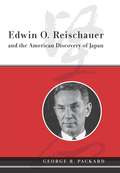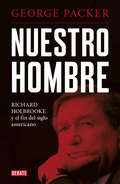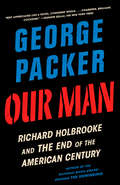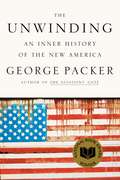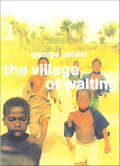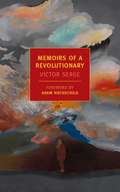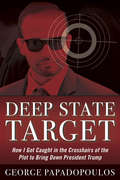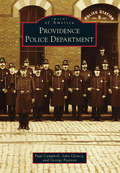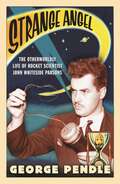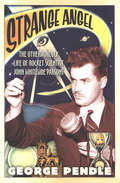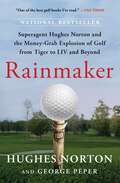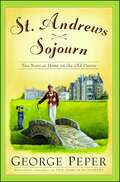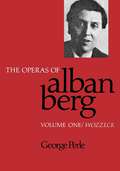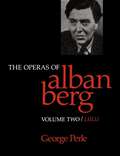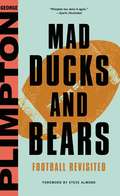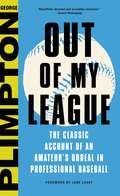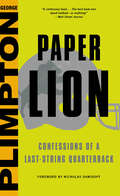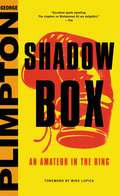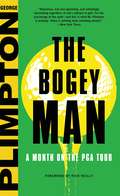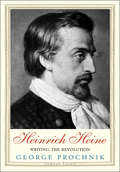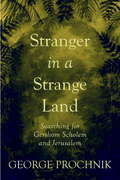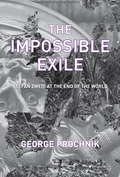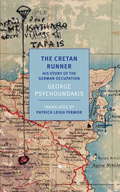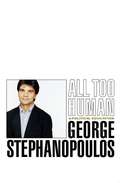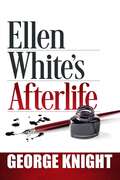- Table View
- List View
Edwin O. Reischauer and the American Discovery of Japan
by George PackardIn 1961, President Kennedy named Edwin O. Reischauer the U.S. Ambassador to Japan. Already deeply intimate with the country, Reischauer hoped to establish a more equal partnership with Japan, which had long been maligned in the American imagination. Reischauer pushed his fellow citizens to abandon caricature and stereotype and recognize Japan as a peace-loving democracy. Though his efforts were often condemned for being "too soft," the immensity of his influence (and the truth of his arguments) can be felt today. Having worked as Reischauer's special assistant in Tokyo, George R. Packard writes the definitive-and first-biography of this rare, charismatic talent. Reischauer reset the balance between two powerful nations. During World War II, he analyzed intelligence and trained American codebreakers in Japanese. He helped steer Japan toward democracy and then wrote its definitive English-language history. Reischauer's scholarship supplied the foundations for future East Asian disciplines, and his prescient research foretold America's missteps with China and involvement in Vietnam. At the time of his death in 1990, Reischauer warned the U.S. against adopting an attitude toward Asia that was too narrow and self-centered. India, Pakistan, and North Korea are now nuclear powers, and Reischauer's political brilliance has become more necessary and trenchant than ever.
Nuestro hombre: Richard Holbrooke y el fin del siglo americano
by George PackerUn vívido relato que nos acerca a una de las figuras más complejas y relevantes de la diplomacia estadounidense. Richard Holbrooke fue un actor principal en un período histórico de incuestionable trascendencia, marcado por el ascenso y por la caída del poder de Estados Unidos. En un vibrante relato, George Packer saca a la luz el idealismo y el propósito humanitario del controvertido diplomático enfrentados, paradójicamente, a su terquedad y su egolatría, y ahonda en el papel clave que desempeñó en las guerras de Vietnam, Bosnia y Afganistán, cuyas consecuencias resuenan hasta nuestros días. La obra no solo penetra en los secretos y la personalidad de Holbrooke, sino que permite al lector abrirse camino a través de las esferas sociales y gubernamentales a las que este perteneció. Una incursión sin precedentes en la diplomacia estadounidense. Reseñas:«Dudé que cualquier novela, ni siquiera una coescrita por Graham Greene y F. Scott Fitzgerald, pudiera capturar a Holbrooke por completo, y ciertamente pensé que ninguna biografía lo haría. Pero ahora una lo ha conseguido. El libro de Packer retrata a Holbrooke en todo su esplendor... Una historia trepidante con sabor a tragicomedia de Shakespeare.»Walter Isaacson, The New York Times «Absolutamente fascinante. Una elegía tanto de Holbrooke como de la visión estadounidense del poder que este representaba. Una obra profunda, reflejada a través de una atractiva prosa.»Barbara Spindel, The Christian Science Monitor «Si este libro rebosa tal intensidad, complejidad y profundidad narrativa es porque su autor había nacido para escribirlo. La fuerza de estas páginas reside en la figura de Holbrooke, que Packer ha definido al mismo nivel que Boswell definió la verdad humana que se escondía tras Samuel Johnson.»Thomas Powers, The New York Review of Books «Una lectura genial, exuberante, elaborada y con el toque justo de cotilleo.»Roger Boyes, The Times «La prosa enérgica de Packer transporta al lector a través de los tres primeros actos de la vida diplomática de Holbrooke. Un trabajo de investigación impecable.»Paddy Hirsch, NPR «Cautivador.»Max Boot, The Washington Post «Excepcional, una de las disecciones del poder en Estados Unidos más fascinantes que he leído jamás.»Steve Bloomfield, The Guardian «Se devora como una novela. Cautivadora y brillante, desprende un aire irresistible de arrogancia.»Jennifer Szalai, The New York Times «Para los Estados Unidos, Packer es una voz de una claridad y una humanidad excepcionales. Cuando nuestros descendientes tracen el mapa de las ruinas de este imperio moderno en búsqueda de sus vestigios culturales, el tesoro que perdurará y van a poder desenterrar son testimonios como el de Packer.»Independent
Our Man: Richard Holbrooke and the End of the American Century
by George PackerFrom the award-winning author of The Unwinding--the vividly told saga of the ambition, idealism, and hubris of one of the most legendary and complicated figures in recent American history, set amid the rise and fall of U.S. power from Vietnam to Afghanistan"I doubt that any novel, not even one co-written by Graham Greene and F. Scott Fitzgerald, could have captured Holbrooke fully, and I certainly thought that no biography ever would. But now one has. George Packer's Our Man portrays Holbrooke in all his endearing and self-willed glory.... Both a sweeping diplomatic history and a Shakespearean tragicomedy." --Walter Isaacson, The New York Times Book ReviewRichard Holbrooke was brilliant, utterly self-absorbed, and possessed of almost inhuman energy and appetites. Admired and detested, he was the force behind the Dayton Accords that ended the Balkan wars, America's greatest diplomatic achievement in the post-Cold War era. His power lay in an utter belief in himself and his idea of a muscular, generous foreign policy. From his days as a young adviser in Vietnam to his last efforts to end the war in Afghanistan, Holbrooke embodied the postwar American impulse to take the lead on the global stage. But his sharp elbows and tireless self-promotion ensured that he never rose to the highest levels in government that he so desperately coveted. His story is thus the story of America during its era of supremacy: its strength, drive, and sense of possibility, as well as its penchant for overreach and heedless self-confidence. In Our Man, drawn from Holbrooke's diaries and papers, we are given a nonfiction narrative that is both intimate and epic in its revelatory portrait of this extraordinary and deeply flawed man and the elite spheres of society and government he inhabited.
The Unwinding: An Inner History of the New America, First Edition
by George PackerA riveting examination of a nation in crisis, from one of the finest political journalists of our generation.<P><P> American democracy is beset by a sense of crisis. Seismic shifts during a single generation have created a country of winners and losers, allowing unprecedented freedom while rending the social contract, driving the political system to the verge of breakdown, and setting citizens adrift to find new paths forward. In The Unwinding, George Packer, author of The Assassins' Gate: America in Iraq, tells the story of the United States over the past three decades in an utterly original way, with his characteristically sharp eye for detail and gift for weaving together complex narratives.<P> The Unwinding journeys through the lives of several Americans, including Dean Price, the son of tobacco farmers, who becomes an evangelist for a new economy in the rural South; Tammy Thomas, a factory worker in the Rust Belt trying to survive the collapse of her city; Jeff Connaughton, a Washington insider oscillating between political idealism and the lure of organized money; and Peter Thiel, a Silicon Valley billionaire who questions the Internet's significance and arrives at a radical vision of the future. Packer interweaves these intimate stories with biographical sketches of the era's leading public figures, from Newt Gingrich to Jay-Z, and collages made from newspaper headlines, advertising slogans, and song lyrics that capture the flow of events and their undercurrents.<P> The Unwinding portrays a superpower in danger of coming apart at the seams, its elites no longer elite, its institutions no longer working, its ordinary people left to improvise their own schemes for success and salvation. Packer's novelistic and kaleidoscopic history of the new America is his most ambitious work to date. <P>National Book Award 2013
The Village of Waiting
by George PackerNow restored to print with a new Foreword by Philip Gourevitch and an Afterword by the author, The Village of Waiting is a frank, moving, and vivid account of contemporary life in West Africa. Stationed as a Peace Corps instructor in the village of Lavié (the name means "wait a little more") in tiny and underdeveloped Togo, George Packer reveals his own schooling at the hands of an unforgettable array of townspeople--peasants, chiefs, charlatans, children, market women, cripples, crazies, and those who, having lost or given up much of their traditional identity and fastened their hopes on "development," find themselves trapped between the familiar repetitions of rural life and the chafing monotony of waiting for change.
Memoirs of a Revolutionary
by Victor Serge Peter Sedgwick George PaizisAutobiography of Victor Serge, one of the great men of the twentieth century, anarchist, revolutionary, agitator, theoretician, historian of his times, and a fearless truth-teller. He was also a great writer, the author of dazzling works of fiction, including the novel The Case of Comrade Tulayev, perhaps the finest book to emerge from the crucible of Stalinist terror, and of these no less extraordinary memoirs. Here Serge describes his upbringing in Belgium, the child of a family of exiled Russian revolutionary intellectuals, his early life as an activist, his time in a French prison, the active role he played in the Russian Revolution, as well his growing dismay at the Revolutionary regime's ever more repressive and murderous character. Expelled from the Soviet Union, Serge went to Paris, and barely escaped the Nazis to find a final refuge in Mexico. Memoirs of a Revolutionary describes a thrilling life on the frontlines of history and includes brilliant portraits of politicians from Trotsky and Lenin and Stalin and of major writers like Alexander Blok and Andrey Bely. Above all, it captures the sensibility of Serge himself, that of a courageous and singularly appealing advocate of human liberation who remained undaunted in the most trying of times. Peter Sedgwick's fine translation of Serge's Memoirs of a Revolutionary was cut by a fifth when it was first published in 1963. This new edition is the first in English to present the entirety of Serge's book.
Deep State Target: How I Got Caught in the Crosshairs of the Plot to Bring Down President Trump
by George PapadopoulosThe former advisor to President Trump shares an insider account of the investigation into Russian collusion in a memoir that &“unfolds like a spy thriller&” (Publishers Weekly). As a young, ambitious foreign policy advisor to Donald Trump&’s presidential campaign, George Papadopoulos became the first Trump official to plead guilty in special Counsel Robert Mueller&’s investigation into Russian interference in the 2016 election. He then became the first campaign advisor sentenced to prison. But as he explains in Deep State Target, there was an intricate set up at play, and it was neither Trump nor the Russians pulling the strings. American and allied intelligence services set out to destroy a Trump presidency before it even started. Here, Papadopoulos gives the play-by-play of how operatives like Professor Joseph Mifsud, Sergei Millian, Alexander Downer, and Stefan Halper worked to invent a Russian conspiracy that would irreparably damage the Trump administration. Papadopoulos was there: In secret meetings across the globe, on city streets being tailed by agents, and ultimately being interrogated by Mueller&’s team and agreeing to a guilty plea.
Providence Police Department (Images of America)
by George Pearson Paul Campbell John GlancyThe Providence Police Department has served New England's second-largest city from its beginnings in 1651 with the appointment of a town sergeant to today's force of nearly 500 men and women. Officially established in 1864, policing in Providence has changed considerably from the days of night watchmen armed with handheld rattle alarms and nightsticks. Whether quelling the violent street riots of 1914, enforcing Prohibition, or fighting the New England mob, the PPD has evolved to meet the complex challenges posed by the city. It also boasts a history of leadership among the nation's law enforcement agencies, being among the first to incorporate women into the department's ranks, create innovative campaigns to reduce traffic fatalities, and pioneer the use of trained canines to aid in police work. Today, cutting-edge telecommunications and forensic analysis in crime fighting continue to protect the city of nearly 178,000.
Strange Angel: The Otherworldly Life of Rocket Scientist John Whiteside Parsons
by George Pendle'Forget geek stereotypes. Parsons' life seems straight out of a Hollywood thriller ... Pendle's book leaves us with a taste of genius's energy and fragility' Los Angeles Magazine'You couldn't make it up' Physics World'As a history of space travel, STRANGE ANGEL is a cornerstone ... Highly recommended' Ray BradburyBRILLIANT ROCKET SCIENTIST KILLED IN EXPLOSION screamed the front-page headline of the Los Angeles Times on 18 June 1952. John Parsons, a maverick rocketeer whose work had helped transform the rocket from a derided sci-fi plotline into a reality, was at first mourned as a tragically young victim of mishandled chemicals. But as reporters dug deeper a shocking story emerged. Parsons had been performing occult rites and summoning spirits as a follower of Alesteir Crowley.George Pendle tells Parsons' extraordinary life story for the first time. Fuelled from childhood by dreams of space flight, Parsons was a crucial innovator during rocketry's birth. But his visionary imagination also led him into the occult community thriving in 1930s Los Angeles, and when fantasy's pull became stronger than reality, he lost both his work and his wife. Parsons was just emerging from his personal underworld when he died - aged thirty-seven. In Strange Angel, Pendle recovers a fascinating life and explores the unruly consequences of genius.
Strange Angel: The Otherworldly Life of Rocket Scientist John Whiteside Parsons
by George PendleNow a CBS All Access series: &“A riveting tale of rocketry, the occult, and boom-and-bust 1920s and 1930s Los Angeles&” (Booklist). The Los Angeles Times headline screamed: ROCKET SCIENTIST KILLED IN PASADENA EXPLOSION. The man known as Jack Parsons, a maverick rocketeer who helped transform a derided sci-fi plotline into actuality, was at first mourned as a scientific prodigy. But reporters soon uncovered a more shocking story: Parsons had been a devotee of the city&’s occult scene. Fueled by childhood dreams of space flight, Parsons was a leader of the motley band of enthusiastic young men who founded the Jet Propulsion Laboratory, a cornerstone of the American space program. But Parsons&’s wild imagination also led him into a world of incantations and orgiastic rituals—if he could make rocketry a reality, why not black magic? George Pendle re-creates the world of John Parsons in this dazzling portrait of prewar superstition, cold war paranoia, and futuristic possibility. Peopled with such formidable real-life figures as Howard Hughes, Aleister Crowley, L. Ron Hubbard, and Robert Heinlein, Strange Angel explores the unruly consequences of genius. The basis for a new miniseries created by Mark Heyman and produced by Ridley Scott, this biography &“vividly tells the story of a mysterious and forgotten man who embodied the contradictions of his time . . . when science fiction crashed into science fact. . . . [It] would make a compelling work of fiction if it weren&’t so astonishingly true&” (Publishers Weekly).
Rainmaker: Superagent Hughes Norton and the Money-Grab Explosion of Golf from Tiger to LIV and Beyond
by George Peper Hughes NortonA rollicking tell-all from golf super-agent, Hughes Norton, detailing everything from his life-changing work with Tiger Woods and Greg Norman to his thoughts on golf&’s current money-grab era. The ultimate read for fans of Alan Shipnuck, Bob Harig, and Michael Bamberger.When twenty-one-year-old Tiger Woods stunned the world by winning The Masters by a mind-blowing twelve strokes, the first thing he did was embrace the three most important people in his life: his father, his mother, and Hughes Norton. At the peak of his career, agent Norton earned a million-dollar salary, flew to all corners of the world in first class, and enjoyed a lifestyle nearly as lavish as his A-list clients. That dizzying success, however, came at a high price. The seventy-hour work weeks, constant travel, and intense pressure—both from his players and their corporate partners—took Norton away from his family and ultimately led to divorce. At the same time, in an effort to protect his players and his career, he found himself making ethical and moral choices he would later regret. Soon, he realized he had made as many enemies as friends. Now, in Rainmaker, Norton draws back the curtain on his meteoric rise and abrupt fall. With never-before-told stories and exclusive insights, he discusses what it was like being Tiger&’s first agent, his time representing the narcissistic Greg Norman, and shining a bright light on his sudden—and controversial—ouster as the head of IMG&’s Golf Division—a juggernaut he helped build. This is an engaging and unforgettable memoir that explores golf as never before.
Two Years in St. Andrews: At Home on the 18th Hole
by George PeperThe Old Course at St. Andrews is to golfers what St. Peter's is to Catholics or the Western Wall is to Jews: hallowed ground, the course every golfer longs to play -- and master. In 1983 George Peper was playing the Old Course when he hit a slice so hideous that he never found the ball. But in looking for it, he came across a For Sale sign on a stone town house alongside the famed eighteenth hole. Two months later he and his wife, Libby, became the proud owners of 9A Gibson Place. In 2003 Peper retired after twenty-five years as the editor in chief of Golf magazine. With the younger of their two sons off to college, the Pepers decided to sell their house in the United States and relocate temporarily to the town house in St. Andrews. And so they left for the land of golf -- and single malt scotch, haggis, bagpipes, television licenses, and accents thicker than a North Sea fog. While Libby struggled with renovating an apartment that for years had been rented to students at the local university, George began his quest to break par on the Old Course. Their new neighbors were friendly, helpful, charmingly eccentric, and always serious about golf. In no time George was welcomed into the local golf crowd, joining the likes of Gordon Murray, the man who knows everyone; Sir Michael Bonallack, Britain's premier amateur golfer of the last century; and Wee Raymond Gatherum, a magnificent shotmaker whose diminutive stature belies his skills. For anyone who has ever dreamed of playing the Old Course -- and what golfer hasn't? -- this book is the next best thing. And for those who have had that privilege, Two Years in St. Andrews will revive old memories and confirm Bobby Jones's tribute, "If I were to set down to play on one golf course for the remainder of my life, I should choose the Old Course at St. Andrews."
The Operas of Alban Berg, Volume I: Wozzeck
by George Perle"Of the greatest significance . . . . The first volume of George Perle's two volume study on the two operas of Alban Berg ... is one of those few works of scholarship and analysis you can label 'definitive'; it may in time be supplemented, but not superseded."--Richard Dyer, Boston Sunday Globe "It is difficult to see how Professor Perle's exhaustive study can ever be superseded. . . or how such future work as may appear can do anything but add new details to his exposition of the basic clements of the work's musical language. . . . After twenty years' work on the composer he brings to this study of Wozzeck not only a penetrating analytical mind, great scholarship and a comprehensive knowledge of the music but an almost uncanny insight into what seem to be the inner workings of Berg's mind."--Douglas Jarman, Music and Letters "If you have ever had any questions about Berg's opera Wozzeck, Mr. Perle probably answers them for you in The Operas of Alban Berg: Volume One/Wozzeck. . . An indispensable work on Berg's life as reflected in his work."--Donal Hcnahan, The New York Times "As with Perle's previous books, one notes with pleasure how well written is this one, how simultaneously economical and comfortable the prose, even when the subject is as complex and manifold as Wozzeck."--Mark DeVoto, Music Library Association Notes "A great and unique contribution .... [Perle] is a leading authority on Berg, and his analysis of Berg's compositional methods in the two operas is likely to be definitive."--George Martin, The Opera Quarterly "George Perle has contributed more than anyone of any nationality to a true understanding of Berg's music."--Douglass Green, Journal of Music Theory "George Perle ... possesses the kind of complete credential required for this study. [Volume I: Wozzeck] is a model of scholarly writing. Every paragraph, each quoted music example, each analysis moves the argument forward in a clear incisive manner .... Essential reading for the serious student of the music of Alban Berg."--Choice
The Operas of Alban Berg, Volume II: Lulu
by George Perle"The first volume of Perle's magnificent study focused on Wozuck ... .Its successor, equally painstaking and perceptive, is if anything more invaluable, for the clouds of mystery around Berg's second opera are only now beginning to disperse, and the work is coming to be regarded properly as the climax of the composer's achievement."--Andrew Clements, Opera "Perle's books have laid the groundwork for a thorough exploration of the remarkably successful ways in which Berg was able to marry a powerful intellectual grasp of a richly developing language to an instinctive feel for dramatic shape, a process that marks him out as one of the few genuine opera composers this century."--Michael Taylor, Music and Letters "The first volume, Wozzeck .... was universally recognized as being a work of outstanding scholarship. The Lulu volume is an even more impressive achievement. In its analytical sophistication, its critical insights and in the implications which it has for our understanding not only of Berg but of a whole body of post-diatonic music, Perle's Lulu is one of the most exciting and important books on music to appear for many years."--Douglas Jarman, Times Literary Supplement "With the second of his books on The Operas of Alban Berg, this American musicologist and composer has now taken advantage of all this new material to consolidate his own research and present us with the most sophisticated musical analysis yet made of the composer .... As Perle shows, Lulu represents the highest point of development in Berg's music from the point of view of ambiguity of fabrication."--Stephen Reeve, Classical Music "Nothing I've read in the past year makes as important a contribution to this literature as The Operas of Alban Berg: Volume Two: Lulu ..... Per!e's saga of the opera's release from partial captivity reads like one of the great intellectual detective stories of our era .... What emerges most flavorfully is Perle's portrait of a haunted artist who imbued his later works with concealed autobiographical gestures, including his longtime love affair with a Prague matron."--Ailan Ulrich, San Francisco Focus "The goal of the two-volume work is not merely to dwell in detail on the operas themselves, but to give some account of Berg's other music, in order to set the operas in the context of his complete output. With a composer like Berg, whose music is intimately bound up with his own personal life, such an approach is particularly appropriate .... George Perle has given the world two volumes which will remain at the top of their field for many years to come."--Douglass M. Green, Journal of the American Musicological Society
Mad Ducks and Bears: Football Revisited
by Steve Almond George PlimptonGeorge Plimpton's follow-up to Paper Lion, one of his personal favorites among his classic books--now repackaged and including a foreword from Steve Almond and photographs from the Plimpton archives.In MAD DUCKS AND BEARS, George Plimpton's engaging companion to Paper Lion, Plimpton focuses on two of the most entertaining and roguish linemen and former teammates--Alex Karras ("Mad Ducks") and John Gordy ("Bears"), both of whom went on to achieve brilliant post-football success. A more reflective, less madcap book than Plimpton's other work, MAD DUCKS AND BEARS is no less truthful and searching. In this fond exploration of football's values and follies, Plimpton rejoins his two teammates to discuss their careers in this brutal but captivating game. The result is an astute exploration into the fascinating lives and motivations of the players at home, in the locker room, and on the field.
Out of My League: The Classic Hilarious Account of an Amateur's Ordeal in Professional Baseball
by Jane Leavy George PlimptonThe baseball classic that Ernest Hemingway called "beautifully observed and incredibly conceived," now repackaged and including a foreword from Jane Leavy and photographs from the Plimpton archives.The first of Plimpton's remarkable forays into participatory journalism, OUT OF MY LEAGUE chronicles with wit, charm, and grace what happens when a self-professed amateur has the chance to answer every fan's question: could he strike out a major league star? Plimpton's inspired idea--to get on the mound and pitch a few innings to the All-Stars of the American and National Leagues--begins as a fun-filled stunt and comes to a deeply hellish, nearly humiliating end. This honest and hilarious tale features Mickey Mantle, Willie Mays, Whitey Ford, Ralph Houk, and other baseball greats and is "a baseball book such as no one else ever wrote, and one of the best ever." --New York Herald Tribune
Paper Lion: Confessions of a Last-String Quarterback
by Nicholas Dawidoff George PlimptonThe book that made a legend--and capture's America's sport in detail that's never been matched, now featuring a foreword by Nicholas Dawidoff a and never-before-seen content from the Plimpton Archives. George Plimpton was perhaps best known for PAPER LION, the book that set the bar for participatory sports journalism. With his characteristic wit, Plimpton recounts his experiences in talking his way into training camp with the Detroit Lions, practicing with the team, and taking snaps behind center. His breezy style captures the pressures and tensions rookies confront, the hijinks that pervade when sixty high-strung guys live together in close quarters, and a host of football rites and rituals. One of the funniest and most insightful books ever written on football, PAPER LION is a classic look at the gridiron game and a book The Wall Street Journal calls "a continuous feast...The best book ever about football--or anything!"
Shadow Box: An Amateur in the Ring
by Mike Lupica George PlimptonGeorge Plimpton makes his riskiest foray into participatory journalism--stepping into the ring against a champion boxer--in SHADOW BOX, now repackaged and including a foreword from Mike Lupica and photographs from the Plimpton archives.Stepping into the ring against light-heavyweight champion Archie Moore, George Plimpton pauses to wonder what ever induced him to become a participatory journalist. Bloodied but unbowed, he holds his own in the bout--and lives to tell, in this timeless book on boxing and its devotees, among them Ali, Joe Frazier, Ernest Hemingway, and Norman Mailer. SHADOW BOX is one of Plimpton's most engaging studies of professional sport, told through the eyes of an inquisitive and astute amateur. From the gym, the locker room, ringside, and even in the harsh glare of the ring itself, Plimpton documents what it is like to be a boxer, an artist of mayhem.
The Bogey Man: A Month on the PGA Tour
by Rick Reilly George PlimptonGeorge Plimpton chronicles his month spent on the PGA tour in THE BOGEY MAN, now repackaged and including a foreword by Rick Reilly and never-before-seen content from the Plimpton Archives.What happens when a weekend athlete--of average skill at best--joins the professional golf circuit? George Plimpton, one of the finest participatory sports journalists, spent a month of self-imposed torture on the tour to find out. Along the way, he meets amateurs, pros, caddies, officials, fans, and hangers-on. In THE BOGEY MAN, we find golf legends, adventurers, stroke-saving theories, superstitions, and other golfing lore, and best of all, Plimpton's thoughts and experiences--frustrating, humbling and, sometimes, thrilling--from the first tee to the last green. This intriguing classic, which remains one of the wittiest books ever written on golf, features Arnold Palmer, Dow Finsterwald, Walter Hagan, and many other golf greats and eccentrics, all doing what they do best.
Heinrich Heine: Writing the Revolution (Jewish Lives)
by George ProchnikA thematically rich, provocative, and lyrical study of one of Germany’s most important, world-famous, and imaginative writers Heinrich Heine (1797–1856) was a virtuoso German poet, satirist, and visionary humanist whose dynamic life story and strikingly original writing are ripe for rediscovery. In this vividly imagined exploration of Heine’s life and work, George Prochnik contextualizes Heine’s biography within the different revolutionary political, literary, and philosophical movements of his age. He also explores the insights Heine offers contemporary readers into issues of social justice, exile, and the role of art in nurturing a more equitable society. Heine wrote that in his youth he resembled “a large newspaper of which the upper half contained the present, each day with its news and debates, while in the lower half, in a succession of dreams, the poetic past was recorded fantastically like a series of feuilletons.” This book explores the many dualities of Heine’s nature, bringing to life a fully dimensional character while also casting into sharp relief the reasons his writing and personal story matter urgently today.
Stranger in a Strange Land: Searching for Gershom Scholem and Jerusalem
by George ProchnikTaking his lead from his subject, Gershom Scholem—the 20th century thinker who cracked open Jewish theology and history with a radical reading of Kabbalah—Prochnik combines biography and memoir to counter our contemporary political crisis with an original and urgent reimagining of the future of Israel.In Stranger in a Strange Land, Prochnik revisits the life and work of Gershom Scholem, whose once prominent reputation, as a Freud-like interpreter of the inner world of the Cosmos, has been in eclipse in the United States. He vividly conjures Scholem’s upbringing in Berlin, and compellingly brings to life Scholem’s transformative friendship with Walter Benjamin, the critic and philosopher. In doing so, he reveals how Scholem’s frustration with the bourgeois ideology of Germany during the First World War led him to discover Judaism, Kabbalah, and finally Zionism, as potent counter-forces to Europe’s suicidal nationalism. Prochnik’s own years in the Holy Land in the 1990s brings him to question the stereotypical intellectual and theological constructs of Jerusalem, and to rediscover the city as a physical place, rife with the unruliness and fecundity of nature. Prochnik ultimately suggests that a new form of ecological pluralism must now inherit the historically energizing role once played by Kabbalah and Zionism in Jewish thought.
The Impossible Exile
by George ProchnikAn original study of exile, told through the biography of Austrian writer Stefan Zweig By the 1930s, Stefan Zweig had become the most widely translated living author in the world. His novels, short stories, and biographies were so compelling that they became instant best sellers. Zweig was also an intellectual and a lover of all the arts, high and low. Yet after Hitler's rise to power, this celebrated writer who had dedicated so much energy to promoting international humanism plummeted, in a matter of a few years, into an increasingly isolated exile--from London to Bath to New York City, then Ossining, Rio, and finally Petrópolis--where, in 1942, in a cramped bungalow, he killed himself. The Impossible Exile tells the tragic story of Zweig's extraordinary rise and fall while it also depicts, with great acumen, the gulf between the world of ideas in Europe and in America, and the consuming struggle of those forced to forsake one for the other. It also reveals how Zweig embodied, through his work, thoughts, and behavior, the end of an era--the implosion of Europe as an ideal of Western civilization.
The Cretan Runner
by Patrick Leigh Fermor George PsychoundakisGeorge Psychoundakis was a twenty-one-year-old shepherd from the village of Asi Gonia when the battle of Crete began: "It was in May 1941 that, all of a sudden, high in the sky, we heard the drone of many aeroplanes growing steadily closer." The German parachutists soon outnumbered the British troops who were forced first to retreat, then to evacuate, before Crete fell to the Germans. So began the Cretan Resistance and the young shepherd's career as a wartime runner. In this unique account of the Resistance, Psychoundakis records the daily life of his fellow Cretans, his treacherous journeys on foot from the eastern White Mountains to the western slopes of Mount Ida to transmit messages and transport goods, and his enduring friendships with British officers (like his eventual translator Patrick Leigh Fermor) whose missions he helped to carry out with unflagging courage, energy, and good humor.Includes thirty-two black-and-white photographs and a map.
All Too Human
by George Stephanopoulos George Pulos Stephen O. PulosA Rhodes scholar with a healthy ego, the young idealist George Stephanopoulos thought he was ready for the obscure governor of Arkansas. But soon after he signed on as his presidential-campaign manager, the odds of Clinton's triumph soared, and so did the chance for calamity via Gennifer Flowers and other scandals. Stephanopoulos scrambled behind the scenes, squelching rumors, spinning major news organizations, artfully knifing Clinton rivals, and second-guessing public opinion--lessons that would serve him well when Clinton won. For the next four years, Stephanopoulos was a few feet from the president, advising him on everything from Iraq and Waco to gays in the military and Paula Jones. More than any book yet--including Monica Lewinsky's--Stephanopoulos's memoir reveals what went on in the scary, occasionally hilarious world backstage at the White House. He casts stark light on characters from Yeltsin, "like a boiled potato slathered in sour cream," to the author's nemesis Dick Morris, whom he depicts bellowing for Clinton to bomb Bosnia. And nobody who's talking knows as well as Stephanopoulos the most passionate, mystifying affair of all, between Bill and Hillary. But years of backroom scheming, screaming, and relentless political attacks took a toll. Stephanopoulos's face erupted in hives; he grew a beard. Slammed by clinical depression, he dangerously delayed medical attention, fearing the story might leak. This memoir could've been titled Prisoner of Spin. Written with the jittery cadence of a bookie, All Too Human is a lively look at the complex and motley cast of characters who rule the world. --Rebekah Warren
Ellen White's Afterlife: Delightful Fictions, Troubling Facts, And Enlightening Research
by George R. KnightPROPHET OR PLAGIARIST? One of the most serious questions ever raised about Ellen White Ellen White’s Afterlife examines: The delightful fictions about her in the 1960s The troubling facts uncovered in the 1970s The enlightening research of the 1980s and beyond Included is a treasure trove of crucial documents in the journey: Minutes of the Walter Rea investigative committee on Ellen White’s use of sources Veltman’s summary of his 8-year analysis of the sources used in The Desire of Ages The White Estate’s reaction to the Veltman study Minutes of the 1919 Bible Conference W. C. White’s understanding of his mother’s inspiration and use of documents Overview of Donald McAdam’s pioneering work on Ellen White’s use of documents
